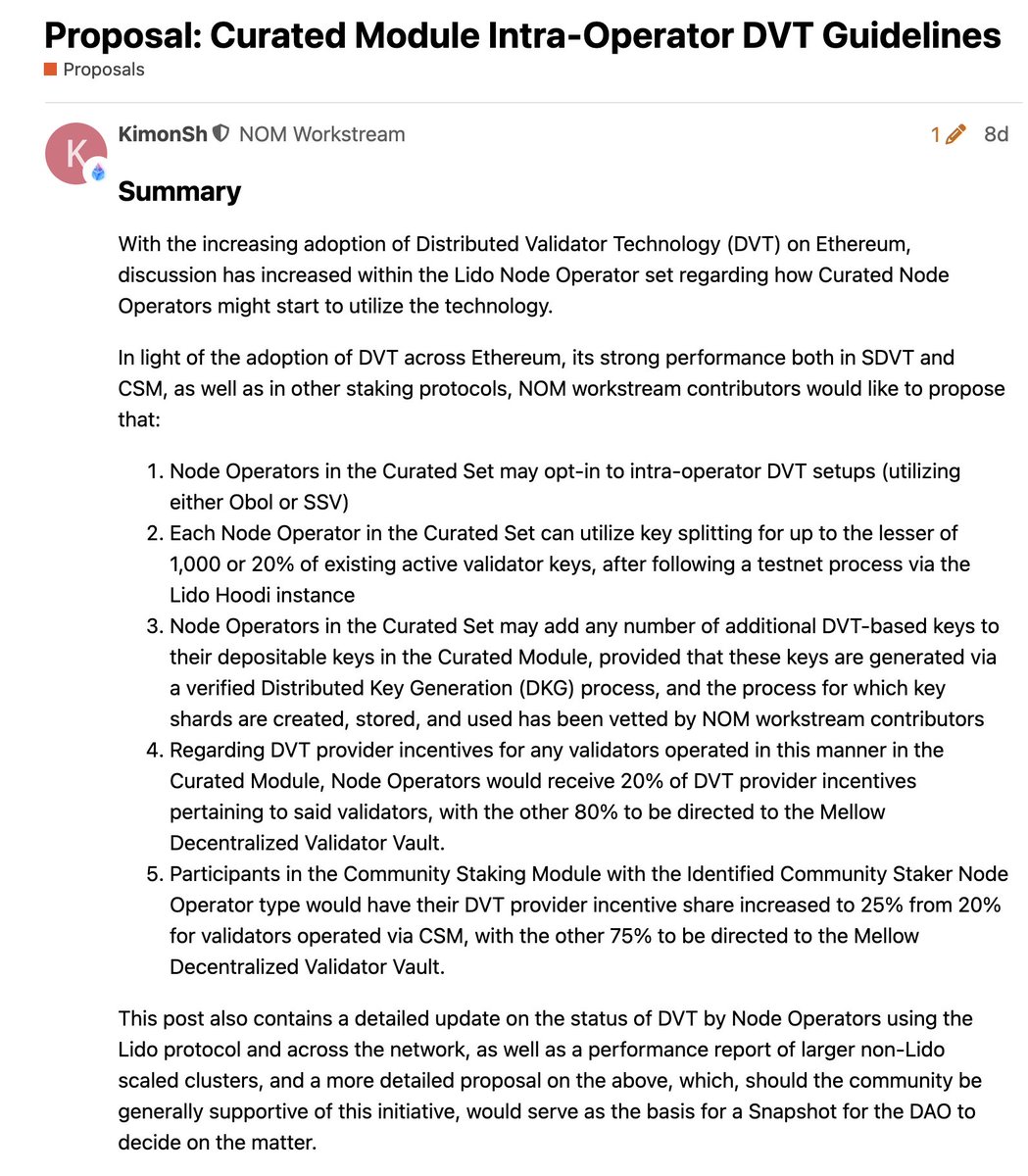DVT (feat. SSV / Obol) is becoming the "standard" for Ethereum infrastructure.
Last week, the Lido Foundation proposed a suggestion.
The proposal is to change 20% of the Ethereum validators operated by Lido's Curated Operators (or 1,000 validators per operator) to be based on DVT (Distributed Validator Technology).
Even if each Curated Operator converts 1,000 validators to DVT, it corresponds to a total of 38,000 validators.
In fact, this is a trend not only for Lido but also for staking liquidity protocols like Mantle and Etherfi, which are consistently attempting to transition to DVT.
Our A41 is also operating 14,000 out of about 25,000 validators based on DVT (SSV + Obol).
DVT is a technology that splits a single Ethereum validator key into 4 or 7 parts, allowing participation in consensus even if only 3 or 5 of them are alive.
- This greatly increases the stability of each validator.
- Additionally, by encrypting the validator's key and operating it in a distributed manner, it is advantageous in terms of security.
- The split keys can be operated by multiple operators instead of a single operator, eliminating the risk of relying on a single operator's trust.
- Furthermore, in addition to Ethereum staking rewards, $SSV and $OBOL token rewards increase the APY.
Nevertheless, the reason DVT has not been actively adopted until now is that, unlike operating a single validator, using DVT requires operating 4 to N times more nodes for a single validator, leading to a significant cost burden.
However, after the Pectra hard fork, it became possible to operate more ETH for a single validator, allowing for a reduction in the number of validators, thereby decreasing the cost burden while increasing the importance of stability.
In this situation, DVT can be the best alternative. By using the resources secured from the reduced number of validators for DVT, additional cost burdens can be reduced while significantly increasing stability.
Currently, the DVT technology is monopolized by the two protocols, SSV and Obol.
Validators must pay fees to these protocols to use DVT, and these fees become the main use case for $SSV and $OBOL.
(Of course, currently both SSV and Obol are in a situation where they are distributing a kind of 'massive' token rewards to attract validators.)
In any case, DVT protocols like SSV and Obol are being actively adopted by large Ethereum staking pools,
becoming the new standard for operating Ethereum validators.
Show original
37
5.32K
The content on this page is provided by third parties. Unless otherwise stated, OKX is not the author of the cited article(s) and does not claim any copyright in the materials. The content is provided for informational purposes only and does not represent the views of OKX. It is not intended to be an endorsement of any kind and should not be considered investment advice or a solicitation to buy or sell digital assets. To the extent generative AI is utilized to provide summaries or other information, such AI generated content may be inaccurate or inconsistent. Please read the linked article for more details and information. OKX is not responsible for content hosted on third party sites. Digital asset holdings, including stablecoins and NFTs, involve a high degree of risk and can fluctuate greatly. You should carefully consider whether trading or holding digital assets is suitable for you in light of your financial condition.

